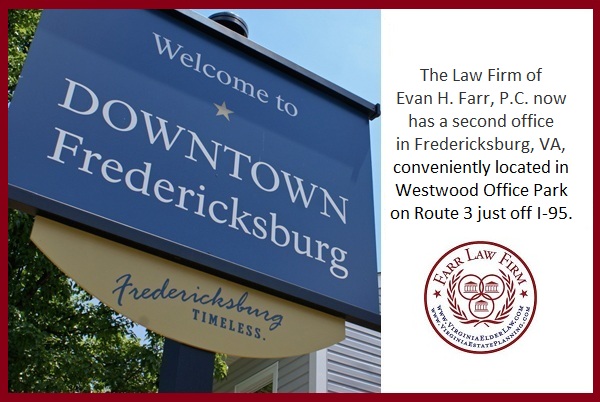Ask the Expert: What are the New Rules for Reverse Mortgages?
Published: Fri, 09/13/13
|
|
|
 | |
|
Ask the Expert: Your Elder Law Questions Answered by Evan H. Farr, CELA |
|
Ask the Expert: What are the New Rules for Reverse Mortgages?
Q: I have been thinking about getting a reverse mortgage for my home, but I heard that the rules will be changing next month. Please tell me more about reverse mortgages and the changes that I can expect. In addition, do reverse mortgages count as a resource for Medicaid eligibility purposes? A. A reverse mortgage is a loan for people age 62 or older. It provides money from the equity in your home through a line of credit, monthly payments or a lump sum. It does not require repayment of the loan until you move, sell the property, or pass away, and the homeowner is still responsible for property taxes and insurance. Reverse mortgages were initially developed as a tool to assist individuals to remain in their homes and communities as they grow older, by allowing homeowners to tap their equity without selling their homes. The rules about reverse mortgages are about to change, making them more difficult to obtain beginning on October 1, 2013. Recently, the President signed HR 2167 - "The Reverse Mortgage Stabilization Act of 2013" - giving the Federal Housing Administration (FHA) the authority to make necessary changes to the reverse mortgage program. According to the United States Department of Housing and Urban Development (HUD), the changes "reduce their risk and make the program easier for seniors to use responsibly." For the homeowner, the changes will make it harder to qualify for a reverse mortgage, but will provide additional protections. Below are some of the changes to the reverse mortgage program:
Anecdotally, reverse mortgage loan originators say two in 10 past borrowers won't qualify under the new restrictions. There is not much time before these rules go into effect. The FHA is pushing to have some, or all, of the changes take effect on Oct. 1, 2013. To work under the older system, borrowers would need to finish a required counseling session by the end of September. Why the new rules? Some seniors who obtained reverse mortgages with rather harsh terms found they were unable to either live off the loan for long or pay it back entirely. The FHA's changes to its reverse mortgage program sets out to encourage home owners to tap their home's equity slowly and steadily. "What regulators are trying to do is shift behavior so that people are more thoughtful and methodical about how they draw the money," says Peter H. Bell, president of the National Reverse Mortgage Lenders Association. "The changes are intended to put the program back on track and encourage people to take what they need and no more." You asked if reverse mortgages count as a resource for Medicaid eligibility purposes. The answer is no. Keeping money in a reverse mortgage line of credit in Virginia, and in most other states, will not count as a resource for Medicaid eligibility purposes so long as the house itself is an exempt resource. (For Medicaid payment of long-term care, the applicant's principal residence is excluded from countable resources for the six months of continuous institutionalization provided the applicant intends to return home and provided the equity in the home property does not exceed $536,000. Regardless of the amount of home equity, after six months of continuous institutionalization the nursing home resident's home will become a countable resource, unless the home is occupied by a spouse, dependent child under age 21, or a blind or disabled child.) However, transferring the money to an investment or to a bank account and leaving it there past the end of the month would convert the exempt home equity into a countable resource and therefore might delay Medicaid eligibility. This important distinction between countable resources and exempt assets is not a simple black and white issue -- if you or your loved one is facing the possible need for long-term care, you should get an opinion from a Certified Elder Law Attorney, such as Evan H. Farr. To make an appointment for a no-cost consultation, please call the Fairfax Medicaid Asset Protection Law Firm of Evan H. Farr, P.C.
----
  Dear Commander Bun Bun, We are looking for an assisted living community for my mom because she is in the early stages of dementia. She has two beloved miniature poodles named Penny and Moose. She seems so relaxed when she is petting them. We are deciding whether to take the dogs in or find an assisted living facility that allows pets. Is there such a thing, and do you think it is a good idea for her and the other residents if she brings her dogs to live with her? Thanks! Pat A. Poodle ----- Dear Pat, In some assisted living communities, dogs and cats (perhaps adorable, smart, and snuggly bunnies also?) can accompany their owners, and sometimes there are pets in assisted living communities (and in nursing homes) that are owned by the facility and enjoyed by the residents. A growing consensus among assisted living residents and staff alike is that pets bring health, connection, and a sense of home. Not every assisted living community has a pet program. They're growing in popularity at a rapid rate, and for good reason. Studies show that when seniors interact with pets, depression and loneliness decrease while socialization and conversation rise. Part of the reason is that pets are not judgmental and they don't see age or disability. In addition to offering unconditional love, lowering blood pressure, helping fight depression and loneliness, and easing loss, pets in assisted living communities keep seniors active. Consider these statistics from the Pets for the Elderly Foundation:
"Taking care of a pet is a way to engage residents," says Paul Kelley, senior director of Operations for Sunrise Senior Living. "Many stay active by filling water bowls and taking trips to a pet store for treats. Sharing care can also be a bonding opportunity for residents and staff alike. And for residents who are used to being cared for, it's a nice change for them to step into a caregiver role as they become responsible for an animal's well-being." It has also been shown that pets are good for dementia patients. They, too, need to belong, love and be accepted. Pets give unconditional love. Dementia patients say the most incredible things in the presence of a pet. There are common challenges with animals in any community living situation, however, including allergies or just a lack of affinity for dogs or cats. Whatever the potential challenges, the upsides seem to far outweigh the downsides. For some residents, time with their own pet, daily rounds from a community dog or cat, or weekly therapy visits can be the highlight of their day. Whether you decide on a facility that allows pets or not, if you have not done Long-Term Care Planning, Estate Planning or Incapacity Planning (or had your Planning documents reviewed in the past several years), now is the time. Please call The Fairfax Medicaid Asset Protection Law Firm of Evan H. Farr, P.C. at 703-691-1888 to make an appointment for a no-cost consultation. While you are here, you will have the opportunity to meet our delightful Siamese cats, bunny, Betta fish, African dwarf frogs, and dog! P.S. Don't forget about your pet! Read our recent post about Pet Trusts and be sure to include them in your planning. About Commander Bun Bun Commander Bun Bun is a year-old Holland Lop rabbit that belongs to Grace Everitt, one of our Asset Protection Paralegals at the Farr Law Firm. In the past, Grace used to raise rabbits for pets and show in Florida, and Commander Bun Bun was the runt of her last litter. As a baby, Commander Bun Bun's mother accidentally bit off her tail and then stopped feeding her. After being hand-reared by Grace, she is now a completely happy and healthy little bunny. Commander Bun Bun loves to be held like a baby and to have her tummy rubbed. You can often find her resting under Gracie's printer table. She enjoys all of the attention (and, of course treats) she gets from staff and friendly clients at the firm. We encourage you to visit us and meet her and our other extraordinary critters! |
| ||||||||
|
|
Unsubscribe to this Newsletter |









